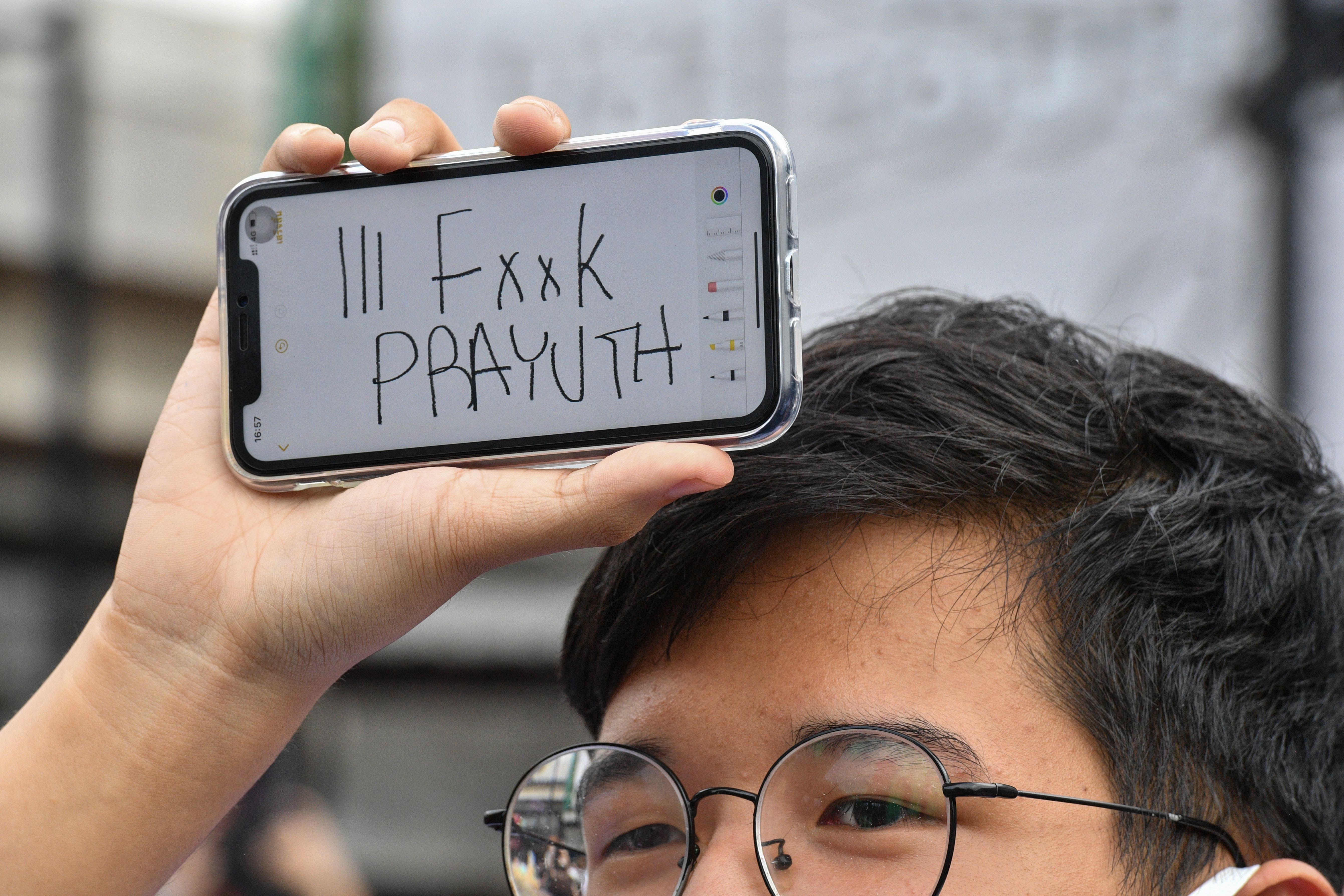Thailand has closed skytrain stations, arrested prominent activists and threatened the media in an effort to crack down on a growing pro-democracy movement. But what may have worked to contain mass turnout before is failing to keep up with a smartphone generation that can adapt quickly and mobilize tens of thousands in hours.
“Now, there’s no longer just a small group of leaders,” Tattep ‘Ford’ Ruangprapaikitseree, one of the main initial organizers of the demonstrations that started earlier this year, told VICE News. “Anyone who’s looking forward to seeing this country transform to a real democracy can also lead.”
Videos by VICE
On Wednesday protesters abruptly marched to Government House in Bangkok and delivered a petition giving Thai Prime Minister Prayut Chan-O-Cha three days to resign. They have also repeatedly called for a new constitution and for the powerful monarchy, which is protected by laws forbidding criticism, to have less political clout.
Wednesday’s march was organized in one afternoon after announcements went out on multiple online platforms, including a Telegram group that gained 200,000 members in days. Separate events have occurred across the country and lists of the different times, places and activities have been posted online almost every day over the last week.
Created in Russia in 2013, the encrypted messaging app Telegram was barely known in Thailand when Prayut seized power in a 2014 coup. By the time he was elected prime minister in a deeply flawed vote last year, smartphone and social media use on Facebook, Twitter and the popular Line messaging app had surged and numerous new platforms were available, including Signal.

Thai authorities’ struggle with Telegram was on full display after someone posted on Twitter a screenshot notification of a deputy prime minister joining the app this week. A leaked document that circulated widely and could not be verified independently also showed an order telling telecommunications companies to block access to Telegram. But it was still operational.
“Despite their best efforts, government officials are having a hard time controlling online spaces. Activists continue to plan, mobilize and freely criticize the government in chat groups and on social media platforms,” said Matthew Bugher, head of the Asia program at free expression advocacy group Article 19.
The attempt to control the flow of information in the country is not out of character for the Thai government, which has a team monitoring fake news and cuts away from foreign newscasts deemed sensitive. Much of the sensitive content relates to Thai King Maha Vajiralongkorn, who is shielded by lese-majeste laws that carry up to 15 years in prison. But as taboos over discussing the royals openly have evaporated almost overnight, the government has struggled to keep up with the deluge of online posts, videos and messages.
Popular petition website Change.org was blocked in Thailand after it hosted a petition to declare Vajiralongkorn persona non grata in Germany, where he spends most of his time. But it had racked up 130,000 signatures before the move, the BBC reported.
In August, the Digital Economy and Society Ministry successfully pressured Facebook to take down Royalist Marketplace, a group that had amassed more than a million members who discussed the Thai king and the military-backed government that has sworn to defend the monarchy. But a new group with the same name was recreated and quickly gained hundreds of thousands of members.

Some of the attempts seem impossible to enforce. A now repealed emergency decree not only banned gatherings of five or more people, it also tried to restrict media from livestreaming the protests. Authorities even warned people not to post selfies from protests, a mammoth task given the size of the gatherings. But they are pressing ahead and reportedly investigating hundreds of thousands of social media accounts. Thailand’s Digital Economy minister could not be reached for comment.
“The government has chosen a dangerous path by targeting online freedoms so forcefully,” Bugher said. “The latest actions will surely feed the grievances and anger of a generation that feels betrayed by Thailand’s ruling class.”
But while observers hailed a recent court decision preventing the shutdown a television station over protest coverage, a climate of fear still exists in the Thai media, according to Human Rights Watch senior researcher Sunai Phasuk.
“They’re still concerned that outspoken media who do their job properly, who report honestly, especially exposing abuse of power by some authorities can still be punished,” Sunai told VICE News. “It is clear that the intent is that the government wants the media to be its mouthpiece.”
Caleb Quinley contributed reporting





